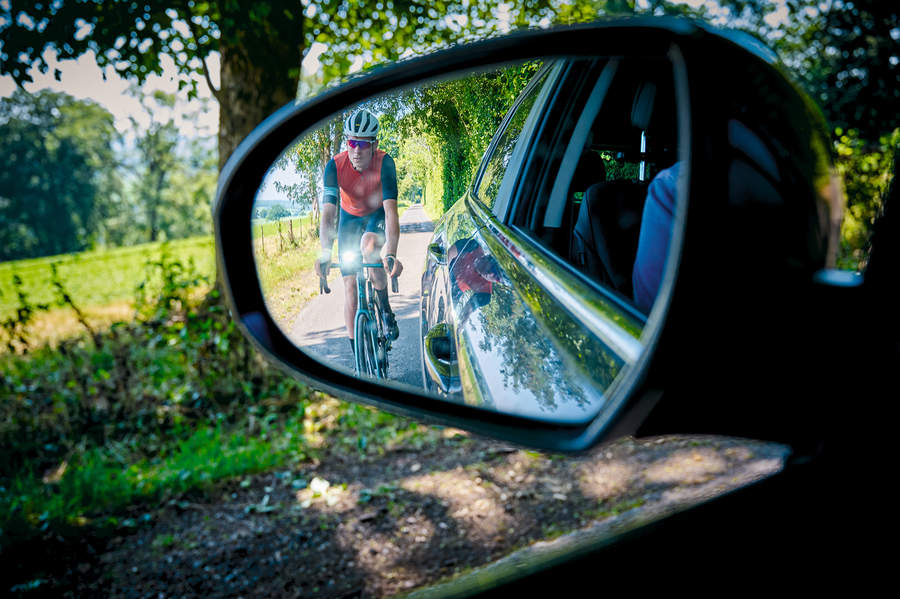The fatality rate for cycling is disproportionately high - but the health risks of letting cars do all the work are far greater
Far too many of us know the dangers of riding a bike, but that shouldn’t put us off it



News editor at Cycling Weekly, Adam brings his weekly opinion on the goings on at the upper echelons of our sport. This piece is part of The Leadout, a newsletter series from Cycling Weekly and Cyclingnews. To get this in your inbox, subscribe here. As ever, email adam.becket@futurenet.com - should you wish to add anything, or suggest a topic.
It’s road safety week in the UK, a time to think about how roads could be safer across the country (and, the world), particularly for those more vulnerable. It’s all too easy to feel vulnerable as a cyclist, as a person wearing regular clothes or lycra, pedalling along while two-tonne vehicles rush past you. But, we must also remember that, by choosing cycling over more sedentary modes of transport, we’re reducing our risk of far more prevalent threats on a daily basis.
“Every year, more than 100 cyclists die on UK roads, meaning they make up around 6% of all road deaths”, reports road safety charity Brake. “The fatality rate is disproportionately high – on average, 30 cyclists die for every billion miles travelled, compared with just two car drivers.” This makes for sombre reading and doesn’t even take into account the injuries, serious or minor, that are reported in their thousands every year. Just this week, we will be publishing the accounts of two people seriously injured by the actions of drivers, as a reminder of the reality that we encounter on two wheels in this country.
The London Cycling Campaign has updated its map of the capital’s most dangerous junctions in the UK’s capital. Looking at the data, what affected me most was the promo for it, which featured regular people talking about how scary some places were. To each of these regular people, feeling afraid on the road, I’d say this: you’re still better off on the bike.
Cycling is a cure to so many of the issues that we face, both as a collective and individually. It is still better for you to cycle than to drive, both from a personal and public health perspective. Compared to commuting by car, cycling is associated with a lower chance of dying from cardiovascular disease - a quarter less - and cancer, according to Cycling UK, while the life years gained by cycling outweighed life years lost by 20:1, according to a study from the 1990s, although that is likely to have risen since then, the charity says. The benefits of cycling are so great, that it’s been prescribed as a legitimate ‘medication’ by GPs working for the UK’s National Health Service.
Cycling is much better for our environment, crucial in this age of the climate crisis - in which a 2018 study revealed that pollution from cars and vans was costs £6billion per year in health damages. Like all active travel, cycling creates a feeling of community, too, where people are no longer shut off inside their vehicles. It’s also cheaper than driving, which is worth remembering as many of us feel the squeeze.
Touch wood, I’ve never had a serious incident on the bike, despite cycling thousands of kilometres a year, and the same is true of lots of people I know who cycle. However, just one bad experience, or reading of a bad experience, could be enough to put someone off for good.
The answer, as always, is fewer cars and more infrastructure. Devon, Cumbria and North Yorkshire, the three places with the most bike lanes in the country, according to research from Aventon Bikes, also have some of the lowest rates of fatalities and injuries per 100,000 people, with the City of London ranked the most dangerous.
Get The Leadout Newsletter
The latest race content, interviews, features, reviews and expert buying guides, direct to your inbox!
People don’t want to cycle if they have to share the road with vans, lorries, and whatever else is allowed on the road, they want to be able to cycle without fear. Liveable streets have been turned into a culture wars issue, with people unable to see a future with less car use, but what the idea represents is a community where you can get around in a low traffic environment, one which allows for people of all ages and abilities to walk, cycle or scoot.
The stats on road safety always make for stark reading, but I will never stop promoting cycling as a good thing to do, as a solution to so many ails. The more of us cycle, the safer everything gets. Get out there.
This piece is part of The Leadout, the offering of newsletters from Cycling Weekly and Cyclingnews. To get this in your inbox, subscribe here.
If you want to get in touch with Adam, email adam.becket@futurenet.com.

Thank you for reading 20 articles this month* Join now for unlimited access
Enjoy your first month for just £1 / $1 / €1
*Read 5 free articles per month without a subscription

Join now for unlimited access
Try first month for just £1 / $1 / €1

Adam is Cycling Weekly’s news editor – his greatest love is road racing but as long as he is cycling, he's happy. Before joining CW in 2021 he spent two years writing for Procycling. He's usually out and about on the roads of Bristol and its surrounds.
Before cycling took over his professional life, he covered ecclesiastical matters at the world’s largest Anglican newspaper and politics at Business Insider. Don't ask how that is related to riding bikes.
-
 'It took everything' - Puck Pieterse outclimbs Demi Vollering to win La Flèche Wallonne
'It took everything' - Puck Pieterse outclimbs Demi Vollering to win La Flèche WallonneDutch 22-year-old shows Classics pedigree with first one-day victory
By Tom Davidson
-
 Tadej Pogačar flies to dominant victory at La Flèche Wallonne
Tadej Pogačar flies to dominant victory at La Flèche WallonneSlovenian takes second win at Belgian classic ahead of Kévin Vauquelin and Tom Pidcock
By Tom Thewlis